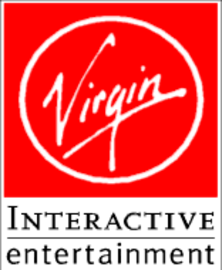Graftgold Creative Software
Developer
Graftgold was an independent computer game developer that came to prominence in the 1980s, producing numerous computer games on a variety of 8-bit, 16-bit and 32-bit platforms.
Much of Graftgold's early success came about through their association with Hewson Consultants. Formed by Andrew Hewson in the early 1980s, Hewson Consultants became one of the UK's most successful computer game publishers. Whereas many publishers at the time relied on larger parent companies to handle the manufacturing of their products, Andrew Hewson owned his own cassette duplication plant, affording them much greater control over their ability to respond to market trends. Many of Graftgold's most memorable titles were published by Hewson including Paradroid, Uridium, Quazatron and Ranarama.
Subject ID: 10826
MoreGraftgold was an independent computer game developer that came to prominence in the 1980s, producing numerous computer games on a variety of 8-bit, 16-bit and 32-bit platforms.
Much of Graftgold's early success came about through their association with Hewson Consultants. Formed by Andrew Hewson in the early 1980s, Hewson Consultants became one of the UK's most successful computer game publishers. Whereas many publishers at the time relied on larger parent companies to handle the manufacturing of their products, Andrew Hewson owned his own cassette duplication plant, affording them much greater control over their ability to respond to market trends. Many of Graftgold's most memorable titles were published by Hewson including Paradroid, Uridium, Quazatron and Ranarama.
Towards the end of the 1980s, it became apparent that Hewson Consultants were suffering financial difficulties. Two of its in-house programmers, Dominic Robinson and John Cumming, responded to this development by leaving the company to join Graftgold. Steve Turner decided it would be in Graftgold's best interest to seek another publisher, so they parted ways with Hewson and signed a publishing deal with Telecomsoft, the software division of British Telecom.
The success of Rainbow Islands solidified Graftgold's reputation as a dependable conversion house, which led to them producing further critically acclaimed conversions of arcade games (such as Flying Shark and Off Road Racer) in addition to their original titles. Graftgold's path through the 16-bit era, however, would remain rocky. The acquisition of Telecomsoft by MicroProse in 1989 worked in their favour, but newly forged deals with Hewson Consultants (by then on its last legs) and Activision proved disastrous. Hewson's liquidation forced them to sell the publishing rights for Paradroid 90 to Activision. While the game sold well on the Amiga, a PC Engine version that had been in development was shelved. To make matters worse, Graftgold had also been developing Realms, an expensive realtime strategy game, for Activision when it was announced that the publishing giant was in severe financial difficulty and had begun closing down many of its international operations. No longer contracted to develop any titles for MicroProse, the future of Graftgold looked bleak.
Graftgold's salvation arrived in the form of Virgin Interactive. Graftgold had already formed a close working relationship with Virgin through their development of Off Road Racer a few years earlier. Having bought back the rights for Realms from Activision, Graftgold finished the game for Virgin. From 1991 to 1993, Graftgold concentrated on Sega's primary gaming platforms — the Master System, Game Gear and Mega Drive — developing and converting numerous titles for these consoles for Virgin.
Graftgold finally folded in early 1998.
Subject ID: 10826
Subject ID: 10826

